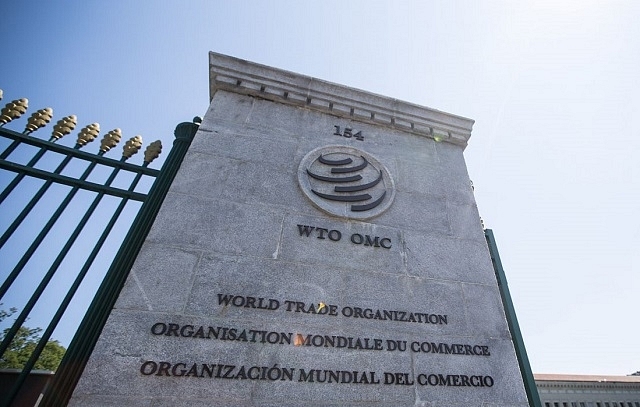Insta
No End To US’ Case Against India At WTO Despite Eased Poultry Import Norms

World Trade Organisation building.
The United States has not withdrawn the case it had filed against India at the World Trade Organisation (WTO) demanding $450 million annually as damages for import restrictions on American chicken despite New Delhi’s recent move to ease the norms, The Hindu Business Line has reported.
According to an official quoted by the daily, the US is trying to ensure everything is in line with its demands before it withdraws the case.
The government, the report says, has reached out to the US at the diplomatic level to convince it to withdraw the case before 20 July.
“After July 20, the retaliatory panel can act on the US plea and give its verdict. We are hoping that we can convince the US to withdraw its complaint before that as we have not only respected the judgement passed by the WTO but also gone further and made changes in our notifications to suit particular demands made by the US. There is nothing more that we could do in the matter,” the official said.
In 2015, India had lost the case filed by the US against measures put in place by New Delhi which prevented American poultry products to enter the Indian market. The US had said that the restrictions, placed by India to combat avian influenza, were not based on scientific validation. After the WTO panel ruled in favour of the US, India made two rounds of changes. The US, however, was not satisfied.
One India’s request, the WTO set up a panel to determine if the changes made to the rules compiled with the Dispute Settlement Body’s ruling. However, the retaliatory panel looking into the US’ complaint may give its judgement before panel constituted to check India’s compliance submits its report.
“India would not have had to fear the verdict of a retaliatory panel had it signed a sequencing agreement with the US when the case was launched. A sequencing agreement would have allowed a compliance panel to rule while safeguarding US rights to retaliate in the event of a finding of non-compliance,” the official added..
Support Swarajya's 50 Ground Reports Project & Sponsor A Story
Every general election Swarajya does a 50 ground reports project.
Aimed only at serious readers and those who appreciate the nuances of political undercurrents, the project provides a sense of India's electoral landscape. As you know, these reports are produced after considerable investment of travel, time and effort on the ground.
This time too we've kicked off the project in style and have covered over 30 constituencies already. If you're someone who appreciates such work and have enjoyed our coverage please consider sponsoring a ground report for just Rs 2999 to Rs 19,999 - it goes a long way in helping us produce more quality reportage.
You can also back this project by becoming a subscriber for as little as Rs 999 - so do click on this links and choose a plan that suits you and back us.
Click below to contribute.
Latest